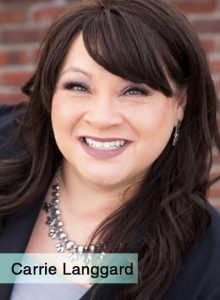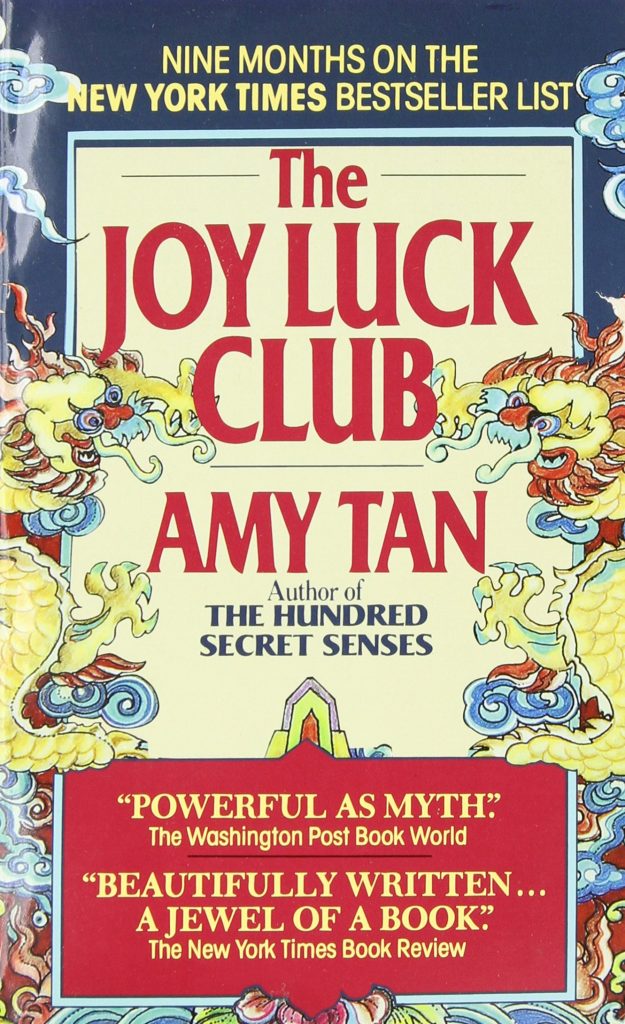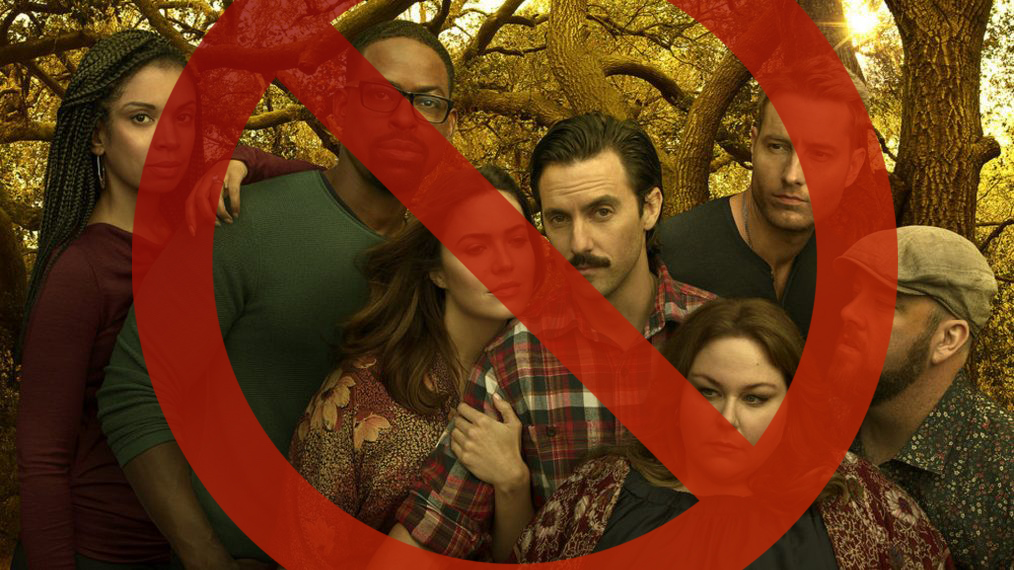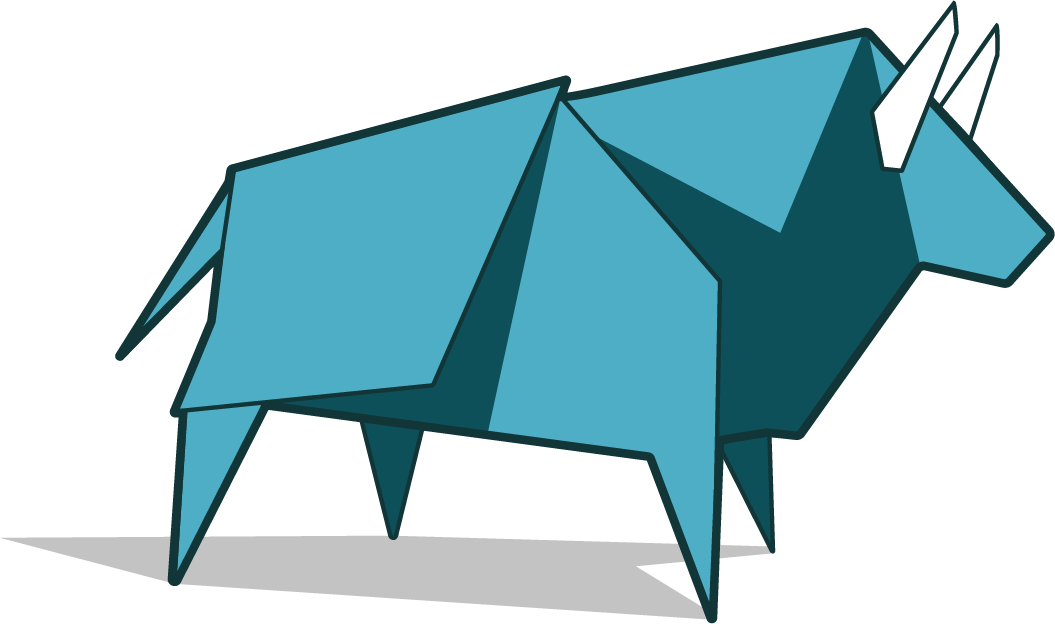
Hello and welcome to our fourth edition of The Juicy Stuff: An Interview Series with Our Board Members. Each month throughout 2019, I will be interviewing one of our board members and publishing it to our blog, right here. The interview is a mix of strategic questions as well as surprise questions to keep things entertaining.
 This month, I interviewed Ms. Carrie Langgard, CFO/EVP of $388M Sooper Credit Union in Denver, CO.
This month, I interviewed Ms. Carrie Langgard, CFO/EVP of $388M Sooper Credit Union in Denver, CO.
Carrie is the newest member of our Board and was elected in May of 2018. I was told enthusiastically that interviewing Carrie would be “a lot of fun,” not exactly knowing what that meant. Would we go out for mid-morning margaritas? Would Carrie sing “Don’t Stop Believing” karaoke with me? My mind was racing with possibilities.
Carrie is a mover and shaker in the credit union sphere, and as you’ll soon find out, this was never a truer statement than the day I interviewed her. Let’s get started.
What are your credit union’s goals for 2019?
Carrie Langgard: Well, we have a couple of retirements happening here. Of our executive team of four, two are retiring at the end of this year, so we have been preparing for this over the last few years. We have some fun and exciting goals this year. I just got a promotion as of yesterday, to EVP CFO. I now have all of operations; back office operations, the retail branching structure and human resources that are reporting to me.
Alicia Disantis: Congratulations!
C: Thank you. I’m really excited. We’ve been talking about this for a while. Sooper has grown substantially in the last few years, 25 percent in four years, so a fourth of our size. It’s been a whirlwind. Our profitability is doing phenomenal as well as our loan growth. Sooper has always been a traditionally strong credit union, but we’re growing fast in strength and size so we’re excited about that.
A: Why do you think you’re doing so well?
C: We’ve worked at tackling business from a different perspective. We’ve added some higher-level staff over the course of the last few years as we anticipate the retirements that are coming. Everyone has come to the table with new ways of thinking: a lot of data analytics, understanding our business more effectively and trying to find tune our profitability. Operating expense reductions and more thoroughly understanding our members has been a focus. This has helped us say “yes” to loans more often as we better understand the pricing and risk between the layers of credit, which has lead to improved profitability. We’ve worked really hard at that over the past few years and it’s really paying off. We’ve also restructured our balance sheet to make it more profitable.
One goal for 2019 is to start transitioning the organization so by the time the retirements happen, we’re in a really comfortable place. I feel like we’re pretty much there already. It is important though to still be able to draw from the experience that our soon-to-be-retirees bring to the organization because both of them have been here for 20+ years. They’re going to leave some pretty big holes, so we are trying to squeeze everything out of them while we can. We want to make sure that we carry on their legacy.
A: I feel like you can’t prepare enough for something like this.
C: And at the same time, we’re moving the organization forward. We have a lot of different technology that we’re implementing.
A: Alright, your first surprise question.
What are you always curious to learn more about?
C: Talking with our members and hearing about their lives. That’s always something I love. I don’t get to have conversations with members daily like in prior years of my career. It’s always fascinating to me how much people have been through…their accomplishments in life but also their trials and tribulations. That’s something that really interests me is to hear people’s stories.
A: Sometimes the higher up you go in the organization, the further away you get from the member.
C: Yes, that can be very true. But that’s one thing we love to do here; really try to focus on our
members’ stories and understand their lives so that we can better assist them.
What was challenging for you last year, as a credit union executive?
C: I think as our organization transitions and we have so much that we’re trying to implement, the most challenging part is to realistically set expectations for what you’re able to accomplish. We’re just firing on all cylinders and moving forward as quickly as possible, and sometimes you can’t get it all done. Trying to understand your limitations as individuals, as an organization and that you can’t do everything at one time. It’s all about strategy, planning and moving forward in a methodical way.
A: Do you follow any sort of guidelines or structure when you’re making decisions about what’s most important? It can be challenging when you have a lot of things in front of you that all can seem to have equal importance.
C: I think it’s understanding what the mission of your organization is and what you’re trying to
accomplish, and then, aligning everything you’re working on with your strategic initiatives. As an organization, we have some clearly defined strategic initiatives. The goal is to line up behind those and say, “You know, we need to move forward and align with what our priorities are.” Our group here did a really cool meeting this year where we took all of our strategic planning initiatives and laid them out on the wall on huge sticky notes. Then we came back and arranged them in order of priority and everyone got on the same page – what is number one? What is number two? If someone’s asking for something that doesn’t align with what we’ve decided our priorities to be, it will have to wait until next year.
A: And now is about the time that credit unions start veering from their strategic plan.
C: That’s so true. Every month, as we sit in our leadership team meetings and ask, “Have our priorities shifted? Is there something that’s making us not want to focus on our chosen path?” If we if we pick five or seven major goals we’re likely to get those things done right, instead of trying to tackle too much, spreading ourselves to thin, doing a little of everything and accomplishing less.
You are sitting in front of the TV, what are you watching?
C: [Without hesitation] Game of Thrones.
A: I feel like I’m the only human who has not watched it.
C: My friend started watching and one of her favorite characters died and she said, “I’m crushed and disappointed. Why would you suggest I watch this? ” and I said, “Give it a week. You’ll have a new favorite character and will have forgotten all about the last one.”
[At this moment, a coworker bursts in the door with a giant vase of flower congratulating Carrie on her promotion and hugging her. We then continue on with our Game of Thrones discussion.]
A: Who’s your favorite character?
 C: I don’t really have a favorite anymore. One character I like is Daenerys Targaryen because she’s a strong female leader with a compassionate heart. And, there’s Jon Snow, who’s the underdog to cheer for, and he is taking over the world now as the quiet, thinking leader that builds loyalty following his heart.
C: I don’t really have a favorite anymore. One character I like is Daenerys Targaryen because she’s a strong female leader with a compassionate heart. And, there’s Jon Snow, who’s the underdog to cheer for, and he is taking over the world now as the quiet, thinking leader that builds loyalty following his heart.
What changes have surprised you most in the credit union industry throughout the years – something you never expected to happen?
C: That’s interesting. I cannot think of anything has really surprised me…I think that every industry evolves and maybe the fact that our industry hasn’t evolved as fast as others is most surprising. Banks have evolved faster than credit unions. It surprises me sometimes that we keep doing things the way we’ve always done them in the past. Maybe that’s because of the number of smaller credit unions, compared to banks, and it’s difficult and expensive to put all that technology into play. I’ve been in the industry for over 20 years and of course there’s been some changes from a technology perspective, but if you look at other industries, not that many. We’ve kept up with the pace of change more or less but haven’t really been at the forefront of it. The lack of change has surprised me somewhat.
What is your favorite book and why?
 C: Well, gosh I’ve had a few favorite books over the years. My favorite book is probably The Joy Luck Club by Amy Tan. A couple of her books are in my favorites list. I think there are things in your life you go back to constantly. My family is Asian on my mom’s side (my dad is Norwegian) and there are these family similarities in her stories between how my own family came from China and the heartache that they’ve been through. There are times where I’m making decisions in life or trying to get refocused and I go back to some of the lessons that are in The Joy Luck Club and try to apply them, like finding your inner strength. Amy Tan refers to inner strength as a tiger spirit, that is quiet, focused, patient, and always ready. I’ve found myself quoting this book for 25 years. I didn’t quite realize how much I’d come back to pieces of it throughout my lifetime.
C: Well, gosh I’ve had a few favorite books over the years. My favorite book is probably The Joy Luck Club by Amy Tan. A couple of her books are in my favorites list. I think there are things in your life you go back to constantly. My family is Asian on my mom’s side (my dad is Norwegian) and there are these family similarities in her stories between how my own family came from China and the heartache that they’ve been through. There are times where I’m making decisions in life or trying to get refocused and I go back to some of the lessons that are in The Joy Luck Club and try to apply them, like finding your inner strength. Amy Tan refers to inner strength as a tiger spirit, that is quiet, focused, patient, and always ready. I’ve found myself quoting this book for 25 years. I didn’t quite realize how much I’d come back to pieces of it throughout my lifetime.
My grandparents came over from China. My grandmother was born in Canada, but was taken back to China when she was young and had a pretty difficult life. She was never educated. She didn’t know how to read. She was in an arranged marriage. My grandmother used to tell me, “Your life is an extension of my life. Every sacrifice I’ve made is to give you the freedom to make choices for yourself. To get an education, have a career of your own and to choose the person you want to love. I didn’t have those choices and every dream that lays unfulfilled in me, can be a reality for you.” That’s been my life: making sure that I don’t waste the sacrifices that somebody else made for me.
A: That’s incredible.
C: Those are my guiding principles. And that book is about multiple?generational family stories of grandmothers, mothers and daughters, describing the exact same stories as my family: their children having opportunities that maybe they didn’t appreciate because they didn’t know what their mothers had been through to buy choices for their children.
What is something that most people love but you find overrated?
C: This Is Us. Everybody loves that show. I don’t. I don’t like the things that make you cry, because I feel like…WHY? Everyone was talking just the other day about how much their love that show, “Oh, I cannot wait to see This is Us and its going to make me cry!” [making sobbing sounds] WHY?
 A: Maybe they need a good cry. Maybe it is cathartic?
A: Maybe they need a good cry. Maybe it is cathartic?
C: That sounds awful.
A: You don’t like crying?
C: I certainly wouldn’t cry for entertainment purposes. There’s enough is enough to cry about right now in the world.
A: Ok, let’s move on. I’m really interested to hear your opinion on this question.
There is a new wave of credit union decision makers on the horizon. What advice would you give them, especially for women?
C: I think it’s a few things. Understand what you want, for you, for your organization, for your members. Have a clear vision of what you’re looking for and then don’t be afraid to ask for things. I learned early in my career that waiting for people to hand me things doesn’t work. “I’m going to work really hard and somebody will see that I could do this,” and many times that was the case. But at the same time, I’ve seen instances where somebody had the voice to say, “Give me a shot!” She was the one who got a shot at it. And I would have liked that same shot, but I didn’t ask for it. It will either give you the experience that you need, or it will teach you that this isn’t what you want. Don’t ever be afraid to use your voice to say, “Hey, I want to try that.”
A: I think that’s especially true for women; there is a societal norm where women don’t feel comfortable asking for recognition.
C: Absolutely. We take what we’re given, and we don’t say, “Wait a minute, I don’t want this.” And most often, if you ask for an opportunity, whoever is in a position of power will support you and say, “Absolutely.” I’ve worked with so many amazing men that have supported me.
What could you spend all day doing?
C: Sightseeing. I love seeing new things: whether it’s going through a museum or an art gallery and trying to get different perspectives on a new city that I’ve never been to. My husband is the opposite of me ? his ideal vacation is sitting on a beach and not moving during the entire week. And I am am like, “I want to see every nook and cranny of this city!” I love to see new things and tackle new adventures; doing things I’ve never done before. That would be how I would spend each and every one of my days.
A: Do you travel a lot?
C: Not as often as I dream of traveling. I would like to travel a lot more. We have two young kids – they’re only six and eight and we’re adopting them. My husband and I have been through a journey with these kids trying to get them situated, helping them overcome their past, and make them feel secure and endlessly loved. It’s been probably as much of a transition for us as it’s been for them in the sense that we only thought, “This is going to be so much fun!” But some days it’s a lot of work and we’re exhausted at the end of the day. We didn’t really anticipate that. I think there will there would be a point, especially with kids, where you could take them traveling with us and they would love that. And hopefully soon they’ll get some passports and we’ll be able to do explore the world.
Tell me your thoughts on the future of credit unions.
C: Two things. You never want to think that your industry can’t go away because we’ve seen in the past that even the strongest of industries can fade into the woodwork if they don’t stay relevant. On that same note, I think credit unions will always be relevant if we have a place where we provide a service that is focused on members and individuals’ lives and not only on profits. We care a lot more about hearing our members stories than banks, but we also have to be able to reconcile the fact that we need to be the best at what we do, too.
Even as credit unions grow larger, it gives us more resources to focus on our members, a greater ability to help people, and to keep recognizing that we are not?for?profit industry. And that I think is going to keep us relevant in the future.
A: So you’ve got a positive outlook?
C: Yes, definitely. I think there was a period it was challenging, like anything. But credit
unions, now in particular, are really finding their place again. Maybe when the industry first started, and credit unions tried to be similar to banks. Now it’s the opposite, “We have to differentiate ourselves from banks again!” and find our footing so that people really understand why we exist and that’s what will make the difference. Credit unions are coming back now and gathering up their resources, which if you compare to banks is really not that much more, like 7 percent market share, right?
But I think that’s enough to differentiate. We need to recognize that we’re never going to be Chase or Bank of America or Wells Fargo Bank (Thank God). We’re never going to be these huge conglomerate organizations who prey on people and their finances. We have more to offer than what the big banks do. Our difference is our strength. I think the credit union industry will focus a lot more on these strengths over the course of the next two decades.
A: Credit unions still struggle with branding though.
C: Absolutely. There are new generations coming along who support the principles of the credit union movement. The younger generations have more of a focus on philanthropy, helping people, and making choices that will better society as opposed to individual wealth. Credit unions are aligned perfectly with these. It’s about getting a message out there: “Hey, from a mission perspective, choose us!”
I’m excited to be on the CU Service Network Board – it’s been a year since I was elected! I feel CU Service Network is making some really strong moves for the future. I’ve been so impressed with the level of professionalism and how hard everybody works. I’m proud to be a part of a part of it.
A: We are happy to have you! Thank you, Carrie.



